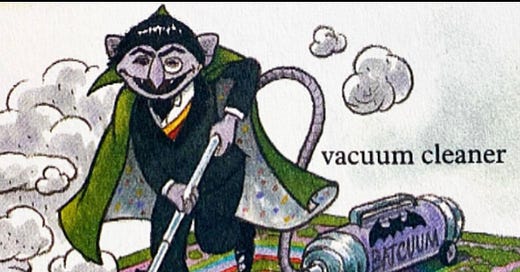The most important thing I learned in the Non-Violent Crisis Intervention workshop is that teachers don’t have ultimate control over their classrooms and students. And those who attempt to assert absolute control either eventually lose it or gain it at the expense of the children’s sense of autonomy, freedom, and willingness to be educated.
Whatever control we teachers do manage to conjure up is purely imaginary.
Classroom management is an illusion that successful educators create similar in efficacy to professional magicians, clowns, and other masters of spectacle. The better educators become at creating illusions, the better their classroom management will be.
Teaching turns out to be one long, well-maintained psyops operation.
Jacob was a tubby little four-year-old preschool terror.
Dimpled and chubby-cheeked, he only spoke Spanish, although he knew how to expertly use a smattering of English words like “bitch” and “fucker.” He had these tiny little fists he would wield to pound the heads of his classmates and these little feet he would scamper on to escape capture as expertly as a leprechaun.
I was having a very difficult time getting him to adhere to my preschool program. Yelling at him didn’t help because he wasn’t particularly afraid of me. Whenever I became loud and angry, he would just stare at me, still and nonplussed, as if I was some drag queen performing the ‘nice and rough’ portion of Tina Turner’s Proud Mary.
Jacob’s mother was a lovely, quiet woman who arrived to school always as put together and as well-dressed as he was.
She loved her only child and took very good care of him. She often slicked his hair into a classic ‘do that looked lacquered into place. Somewhat curiously, his mother always carried this little backpack with her instead of a purse. It struck me as an odd, juvenile fashion choice for an adult woman but, whatever, that was none of my business.
It was at the first parent conference that she revealed to me she had a very dangerous heart condition and carried a machine in the backpack that helped regulate her heartbeat. She was set to receive a heart transplant at some point in the future. I felt like a guilty, catty queen for judging her backpack as an odd fashion choice. She was a single mother with a child who could only be described in Spanish as un tremendo. She often had to pay older lady neighbors to babysit Jacob so she could go to work. He didn’t ever have much time with her, I suspected.
After a certain point, despite his continued abuse and foul language, there was really no use in complaining to her about Jacob’s behavior. She was helpless, worked too much, and had a heart condition to attend to on top of all that. I wasn’t going to add to her stress by complaining everyday about her son’s bad behavior because she couldn’t do much of anything. Once again, I was on my own.
Placing Jacob in quiet time, taking away privileges, reasoning with him, pairing him up with others, scolding him, yelling at him, excluding him, nothing proved effective. He had an I-don’t-care attitude with any and all my reprimands. He did not give one actual fuck about what I thought of him. And I kind of admired him for that, despite the headaches it gave me. I figured that maybe on some deep psychological, subconscious level he was reacting in a way only a four-year-old could to his mother’s lethal medical condition and heavy work schedule.
Then one day my classroom rug was dirty.
Usually, I waited until the children were all completely dismissed to clean up the room, because any cleaning done before the room was empty of students proved moot. But on this day the rug was in especially terrible shape. I walked over to a corner of the room where I stored a vacuum cleaner I kept hidden from the janitors who never returned things they borrowed. I rolled it over to the rug where a couple of students, including Jacob, bounced around waiting for their parents to pick them up.
I didn’t immediately register the look of dread on Jacob’s little face.
When I plugged in the vacuum and switched it on, OMG! He started wailing and trying to hide from me as if I had plugged in an electric chair I was going to force him to sit in. He wouldn’t look away from the appliance but also tried to get away from it, hiding behind his classmates, pushing them forward, trying to feed them to the machine. He was so frightened. And I was confused.
This little boy who didn’t fear nobody, nothing was afraid of a vacuum cleaner? What? That didn’t make any sense. I moved the vacuum a little toward him to test out my hunch and he flinched, screaming a horror movie “Noooooooo!” as if I held a samurai sword in my hand and was threatening to stab him.
Hot damn! I had inadvertently discovered this boy’s kryptonite. Finally!
A wave of delicious satisfaction overcame me. I turned the vacuum cleaner off and returned it to storage. From then on, whenever he misbehaved or refused to follow my directions, I would begin to mosey on down in the direction of the vacuum and he would fall in line, in double time. He became a much-improved student.
Again, I must say, why I was never nominated for teacher of the year is beyond me.
Educators have to make up so much on their own.
From nothing, we have to produce something, weave straw into gold, hand out fishes and loaves from a near-empty basket, pull rabbits out of hats, and quarters from ears.
Our classroom management could come in the form of colors codes or happy faces or prizes or candy or stickers or the taking away of things the kids value, denying of privileges, quiet time, chairs in the corner, Elves on the Shelf, Santa Claus, the Cucuy, the Easter Bunny, the Tooth Fairy, vacuum cleaners, whatever.
We use what we have.
We become wizards and witches, illusionists, experts in fictions and fabrications. Masterminds in making shit up, pulling things out of thin air, taking a sticker, a colored pen, a stuffed animal, and suddenly designating it as extraordinary and special, imbuing it with a power to control the population of children at our feet.
The best teachers become self-taught sorcerers.





